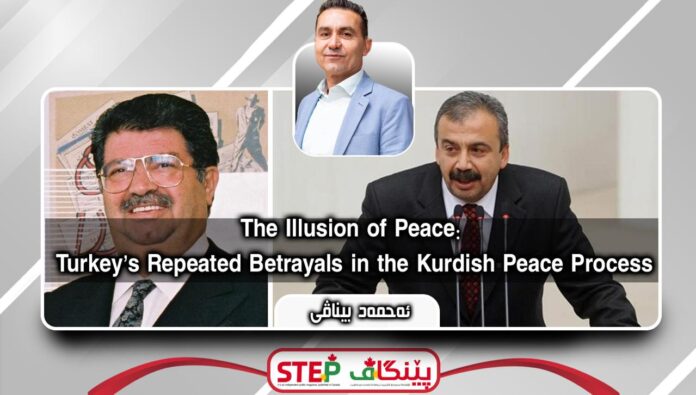Ahmed Binavi
For over three decades, Turkey has launched multiple peace processes with the Kurdish people—only to abandon them whenever it no longer serves its interests. These cycles of false hope and betrayal have left the Kurdish community deeply distrustful of Ankara’s intentions.
In 1993, President Turgut Özal—a rare advocate for peaceful resolution and Kurdish recognition—died suddenly under suspicious circumstances. A later investigation revealed traces of poison in his body, fueling suspicions that he was deliberately silenced by forces opposed to peace.
In 2013, another peace initiative began with a jailed Kurdish leader at the center. But soon after, the Turkish government made vague excuses, resumed military operations, and arrested leading Kurdish figures such as Selahattin Demirtaş. Most remain imprisoned today.
In 2024, a new round of negotiations began, led on the Kurdish side by veteran politicians Ahmet Türk, Sırrı Süreyya Önder, and Pervin Buldan. Yet again, tragedy followed. Türk and Önder were hospitalized shortly after the talks began, and Önder passed away in May 2025. Even the Turkish political figure linked to the far-right MHP party who helped initiate the process has also been hospitalized and remains in poor health.
These repeated patterns raise serious doubts. To many Kurds, “peace talks” are nothing more than a political tactic—used to delay, distract, and weaken the Kurdish movement when it gains momentum.
Until Turkey shows real commitment through reforms, prisoner releases, and respect for Kurdish rights, the so-called peace process will remain exactly what it has always been: a calculated illusion.





